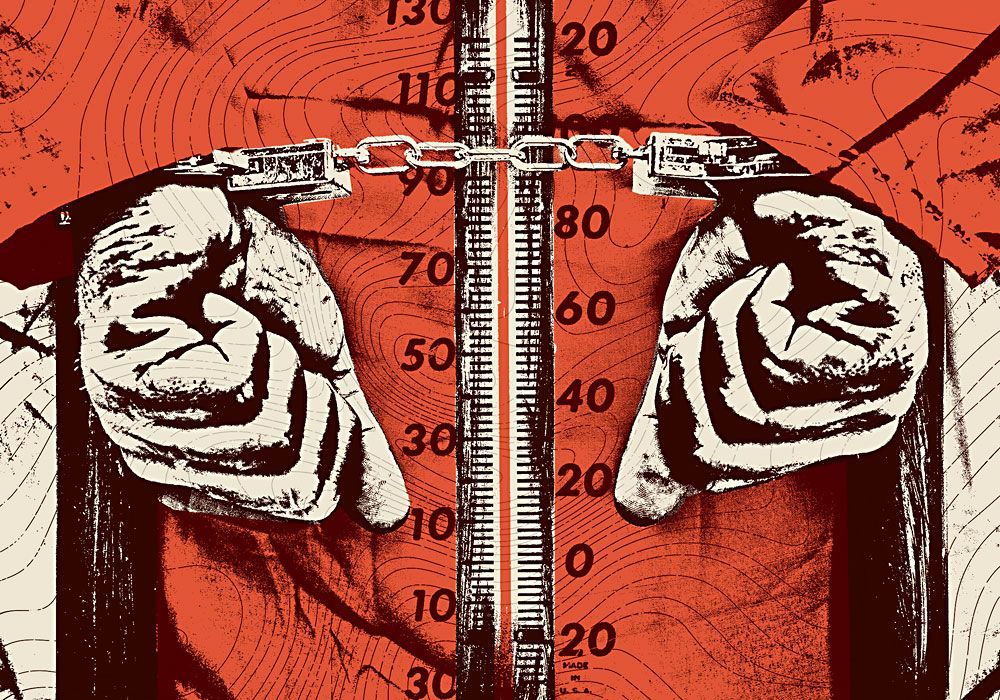Prisons Get Brutally Hot; It's Worse in Solitary Conditions
Many of the 2 million incarcerated people in the US are in the 44 states that do not universally provide air conditioning in prison facilities

Extreme heat waves, now becoming more and more commonplace as global warming increases temperatures around the world, pose a significant health risk for incarcerated individuals, especially in prisons lacking air conditioning. Many states don't provide universal air conditioning, leading to dangerous conditions, including heat exhaustion and potentially fatal heat strokes. Research also suggests that extreme heat can increase the risk of death, mental health issues, and violence within prisons.
This is especially true in the Southern and Midwestern United States, and especially in prisons with minimal air conditioning. The combination of heat and humidity increases the danger, with some prisons experiencing over 100 days of dangerous conditions annually. Incarcerated individuals with pre-existing medical conditions, older individuals, and those who may be more sensitive to heat are at even greater risk.
This risk is exacerbated for incarcerated people in solitary confinement conditions. Individuals in solitary have virtually no control over their environment, including temperature regulation. They cannot open windows, adjust air conditioning - if that's even available in the facility - or seek relief in other areas of the facility. Restricted movement in solitary confinement also reduces opportunities for physical activity and cooling down, further increasing heat exposure.
Some lawsuits have argued that extreme heat in prisons constitutes cruel and unusual punishment, violating the Eighth Amendment of the US Constitution that prohibits cruel and unusual punishment. While some courts have ruled in favor of the incarcerated, implementation of solutions remains slow and inadequate.
Earlier this month, attorneys with the MacArthur Justice Center, a civil rights legal organization, filed a class action lawsuit against officials at the Missouri Department of Corrections on behalf of people incarcerated at the Algoa Correctional Facility in Jefferson City, alleging that the prison’s “brutally hot” conditions constitute cruel and unusual punishment for those forced to endure dangerous temperatures with little to no relief.
In interviews with The Marshall Project, some of the men incarcerated in solitary conditions at Algoa spoke to the unbearable heat they dealt with.
“When medical emergencies like heat stroke occurred, we had to kick on the doors and scream for help. Often, it took over an hour for anyone to come. Sometimes, no one came to help.” - Kenneth Barrett
“I really thought I was going to die from heat stroke last year. The heat gets so bad it often causes panic attacks. Hallucinations are not uncommon.” - David Blackledge
You can read more about the MacArthur Justice Center lawsuit, and similar climate related-issues and conditions faced by incarcerated persons in other carceral facilities across the country in "These Missouri Prisons Get ‘Brutally Hot.’ In Solitary, It’s Even Worse" from the Marshall Project. The Marshall Project is a nonpartisan, nonprofit news organization that seeks to create and sustain a sense of national urgency about the U.S. criminal justice system










